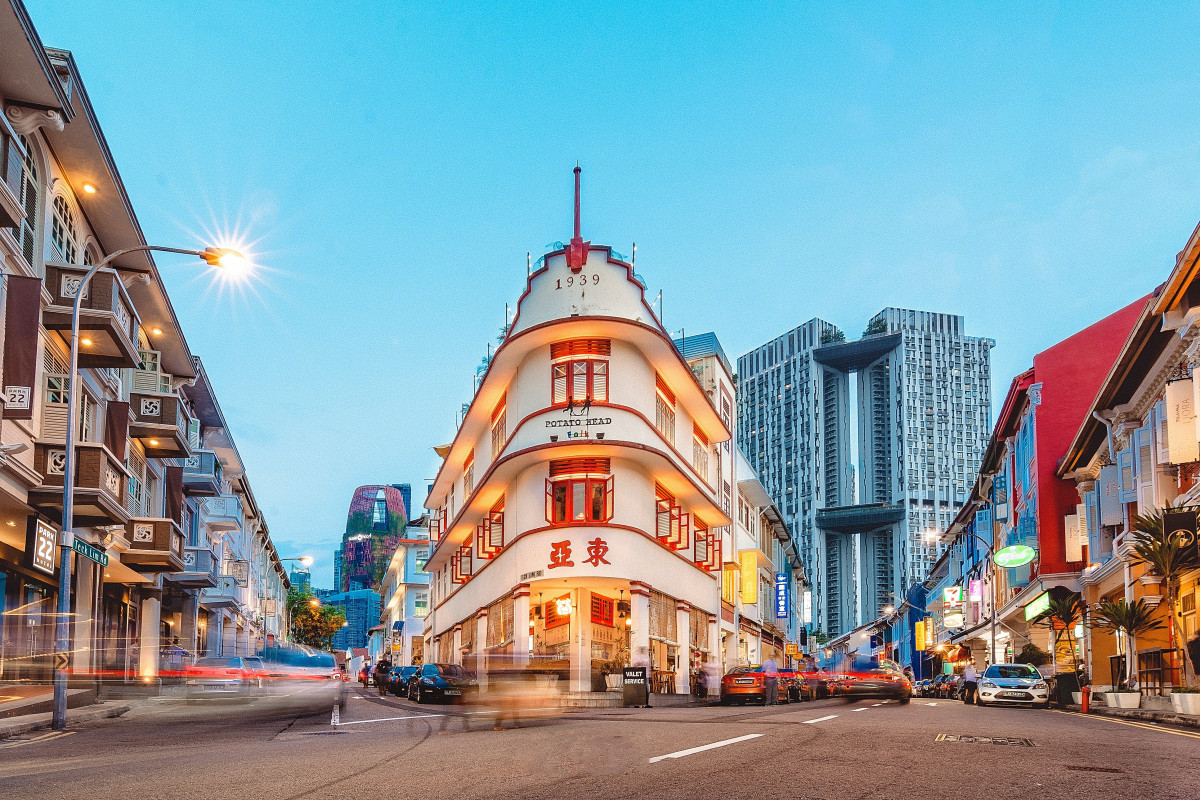Can a foreigner set up a company in Singapore?
Let's get things done.
Singapore has always welcomed enterprise and industry. It’s been woven into the very fabric of its modern beginnings. Today, with its resilient economy, friendly business climate, and reliable infrastructure, Singapore is a magnet for expat entrepreneurs looking to turn their dreams into reality. Bountiful opportunities belie the gleaming skyline of Singapore, where ambition drives countless business ventures to the next level. But can a foreigner set up a company in Singapore?
Table of Contents
- Setting up a company in Singapore for Foreigners: is it possible?
- Getting Down to Business—How can a foreigner set up a company in Singapore?
- 1. Select a Business Structure
- 2. Understand the Legal and Regulatory Requirements
- 3. Registering your business
- 4. Set up a corporate bank account
- 5. Find funding and support
- Setting Your Business Goals into Motion
- MetroResidences Singapore Serviced Apartments—Your Home Base for Travels Beyond

Setting up a company in Singapore for Foreigners: is it possible?
The short answer: yes. Foreigners can set up a new business in Singapore. Singapore has always been very friendly to business. Its law allows foreigners to fully own local corporations. Furthermore, if you own a parent company and form a Singapore-based subsidiary, you can still enjoy all the benefits of Singapore incorporation.
There is quite a lot to cover. But even so, you need to meet the fundamental criteria for eligibility: your residency status. As an expat, you typically need a valid work visa, such as an Employment Pass (EP), EntrePass, or Personalized Employment Pass (PEP) to set up a company in Singapore.
Unless you’re a Singapore Permanent Resident (PR), foreign entrepreneurs residing in Singapore may apply for an Entrepreneur Pass (EntrePass) through the Ministry of Manpower (MOM) in order to start and operate a business in the country. Foreign entrepreneurs who meet the eligibility criteria can apply for an EntrePass, either before or up to 6 months after incorporating a company with ACRA. Visit the MOM’s website for more information about EntrePass.
With that, let’s get started. Here are the steps to setting up a company in Singapore successfully.

Getting Down to Business—How can a foreigner set up a company in Singapore?
1. Select a Business Structure
Whether you’re starting a serviced apartments company (if you dare) or just making pies, setting up a company takes more than just filling up a form. In Singapore, one of the first things you need to look at (besides having an actual plan) is the type of business structure to operate from.
Sole-Proprietorship (single owner) or Partnership (two or more owners)
We start with this since it’s easier to set up and less costly to run, when compared to a company. A sole proprietorship is a business owned and controlled by an individual, a company or a limited liability partnership. There are no partners in the business. Whereas a partnership is a business owned by at least 2 partners. The partner can be an individual, a company or a limited liability partnership. The maximum number of partners in a general partnership is 20.
With this form of business structure, you won’t need to deal with the complexities of limited liability companies (LLCs). There are usually fewer legal formalities and administrative obligations, so you can focus on launching your venture. Not to mention, this usually involves lower initial capital requirements and reduced compliance costs, all the while offering you flexibility and control as you run your business.

Limited Partnership (LP)
The Limited Partnership (LP) is a commonly used business structure in Singapore. A partnership must have a minimum of two partners, including one general partner and one limited partner. An LP lacks an independent legal identity from its partners, meaning it cannot file lawsuits or own assets under its own name. With that, the termination of an LP can occur due to partner retirement, insolvency, incapacity, or death. Partners can also terminate the partnership by providing notice, regardless of the reason for dissatisfaction.
Every LP must have at least one general partner and one limited partner, though there you can have an unlimited amount of partners. The general partner can be an individual or a company, where they have unlimited liability and can take part in the management of an LP. So a general partner is responsible for the actions of the LP and is liable for all debts and obligations the LP incurs.
Meanwhile, the limited partner can be an individual, a company or an unregistered foreign company. But, a limited partner’s liability s capped at the amount of his agreed investment in the LP. They are not liable for any debts and obligations of the LP beyond that amount.
For new expat entrepreneurs, limited partnerships allow them to combine resources and expertise with local partners or investors. Under this business structure, partners share the responsibilities, decision-making, and risks in the business. So partners need to collaborate and leverage each other’s strengths to build a stronger business. Local partners can open up new connections and networks, allowing for more possibilities for additional resources, partnerships, and investments.
Should expats join an LP as the limited partner, LPs can help protect expat entrepreneurs from some forms of liabilities. Unlike a general partnership, partners under this structure have their liability restricted to the amount they have invested in the partnership, shielding personal assets from business-related risks. That said, a limited partner shall not take part in the management of the LP. If they do, they will be treated as a general partner with unlimited personal liability.

Limited Liability Partnership (LLP)
An LLP provides the benefits of a partnership structure with the added advantage of a distinct legal identity, similar to that of a private limited company. The law recognises LLP as a separate legal entity, distinct from its partners. The LLP has perpetual succession, indicating that any alterations in its partners will not impact its existence, rights, or obligations.
In an LLP, expats have flexibility in making business decisions and manage their business. With that, they can allocate responsibilities that efficiently leverage the different expertise within the organisation. In addition, through forming an LLP, expat entrepreneurs can leverage their network and attract investors. This is the key to sustaining and growing the business, because expats can have access to capital and expertise that might not be available otherwise.
That brings us to some barriers to forming LLPs. Even if there is no minimum paid-up capital requirements for LLPs, expat entrepreneurs should also consider whether they have the financial resources to sustain the business.

Private Company
This is considered one of the most flexible forms of business structure in Singapore, where it is registered under the provisions of the Singapore Companies Act. There are 4 different types of companies:
- Private company limited by shares
- Exempt private company
- Public company limited by shares
- Public company limited by guarantee
A private company in Singapore is a separate business entity from its shareholders and directors. That is one of its most obvious strengths. With limited liability protections provided for under this structure, the shareholders’ personal assets are generally protected from the company’s debts and liabilities, minimising the personal financial risk for expat entrepreneurs.

This business structure also allows for a more streamlined management of assets, liabilities, contracts and business operations. There is also flexibility in terms of ownership, as shareholders can enter or exit by buying or selling shares in the company. This can help expat entrepreneurs plan for business expansion, find investors, and do succession planning.
But there is increased scrutiny to ensure the business remains along ethical and legal lines. Private companies are subject to stricter disclosure and transparency requirements. So expat entrepreneurs need to be very aware of their legal obligations and fiduciary responsibilities while ensuring good corporate governance practices.

2. Understand the Legal and Regulatory Requirements
Once you’ve decided on the business structure from which you run your business, it’s time to get down to the nitty-gritty. Thankfully, in the age of internet, Singapore has plenty of official government resources you can easily access online. The first government agency you should look to is the Accounting and Corporate Regulatory Authority (ACRA).
ACRA provide a trove of guides, news and online government services, all on one website. Their website will guide you from beginning to end, from the company registration process to filing annual returns. There are even guides on how to file annual returns and the common offences for the different business structures.
Expat entrepreneurs should take a look at the Ministry of Trade and Industry Singapore (MTI) website as well. Under the Regulation section, they provide links to all the legislations that governs all the different sectors in Singapore.
But even with government resources, expat entrepreneurs also have to familiarise themselves with sector-specific authorities about the specific business licenses, permits, or approvals. Another way to navigate legal requirements and regulatory obligations is to seek professional advice, be it lawyers, business consultants, or incorporation specialists. The Singapore Economic Development Board (EDB), a government agency under the Ministry of Trade and Industry, may be helpful as well.

3. Registering your business
If you’re all ready to go, it’s time to put pen to paper and get your business registered. First off: a name. You can’t just submit anything; company names have to comply with guidelines set by ACRA.
Afterwards, all your research on the various legal and regulatory requirements comes in. Before you register your business with ACRA through its online BizFile+ portal, do try and have all your documents ready: like your identification documents, business profile, registered address, as well as the details of the shareholders and directors.
Once you’ve registered your business, you need to sign up for a Corppass administrator account. Corppass is a corporate digital identity. With Corppass, you’ll have one-stop secure access to a wide range of online government services, from filing tax returns to managing employee-related matters.

4. Set up a corporate bank account
Singapore’s banks are digital-ready too. Most, if not all, of the major banks in Singapore offer easy registration processes for new businesses. The Development Bank of Singapore (DBS) even touts that you can apply for one in 5 minutes.
But if you think just using your bank account would do. Don’t. It’s best to keep your business transactions separate from your private ones. That way, it’s not only easier to track your cash flow but also easier to file your personal income tax returns too. So to help you get started, take a look at the steps and necessary documents for setting up a corporate bank account in Singapore by GoBusiness.

5. Find funding and support
Here is where the Singaporean government swoops in to help again. The EDB itself already has plenty of resources and services available. Besides providing information on doing business in the little red dot, the EDB also provide connections to business partners, as well as a variety of incentives and schemes for all kinds of businesses, be it in manufacturing or services.
Enterprise Singapore is another channel that expat entrepreneurs can explore. It’s a statutory board under the MTI that’s been formed in April 2018, where it helps enterprises in Singapore grow and develop, no matter what stage they’re in. All you need to do is to make an appointment so that they can see how to help. Enterprise Singapore also offers financial support through grants and schemes to help you get a headstart.

Setting Your Business Goals into Motion
Now that you’re done setting up a company in Singapore, don’t forget about all the tax and accounting obligations as well. As much as Singapore has a favourable tax environment, you still have to keep accurate accounting records, file annual tax returns, as well as fulfil your Goods and Services Tax (GST) obligations.
If you plan to hire employees, don’t forget to read up on Singapore’s employment regulations. As with other government agencies in Singapore, you can find all of it on the MOM website. Singapore’s employment landscape is ever-changing, so keep an eye out for any changes or requirements too.
To be on the safe side, try and consult professional company incorporation services, as well as corporate services providers as well. They are best equipped to show you what’s the best way forward and offer you valuable wisdom and knowledge as you’re setting up a company in Singapore.
About the Writer: Benedict Lim
As the resident punmaker, Benedict is really bad at making people laugh. They’re much better at diving into the nuances of the things they write about.

MetroResidences Singapore Serviced Apartments—Your Home Base for Travels Beyond
Looking for your home away from home? Our Singapore apartment rentals and serviced apartments are perfect for a longer period of stay. We have properties in luxury developments across Singapore’s most coveted addresses: Bugis, Bukit Timah, Shenton Way, and Novena.
And, you can rest easy at any of our properties. We adhere to our strict Property Standards that account for the comfort and cleanliness of all our serviced apartments. Our fully-furnished apartments come with amenities like wi-fi, air conditioners, and a fully-equipped kitchen.



